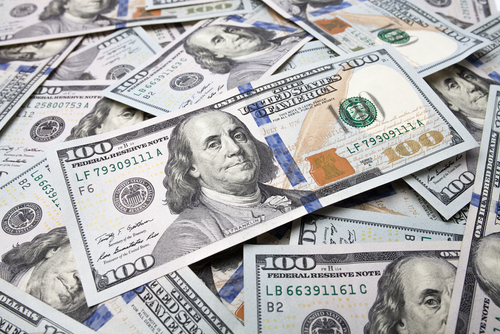Supreme Court rules disgorgement, with limits, is allowed in SEC civil actions

Image from Shutterstock.com.
The U.S. Supreme Court ruled 8-1 Monday that the U.S. Securities and Exchange Commission may seek disgorgement—with some limits—in civil enforcement cases.
In an opinion by Justice Sonia Sotomayor, the Supreme Court said disgorgement is permissible, as long as the award does not exceed a wrongdoer’s net profits and is awarded for victims.
The court ruled in the case of Charles Liu and Xin Wang, a married couple ordered to disgorge $26.7 million that they collected for a cancer treatment center. Only a fraction of the funds went for a lease, property improvements and a proton therapy machine for treatment. Nearly $20 million was attributed to marketing expenses and salaries.
Liu and Wang had collected the money from 50 Chinese immigrants hoping to take advantage of a federal program that offers visas to immigrants who invest in U.S. businesses.
At issue was a law authorizing the SEC to seek civil penalties and “equitable relief” in civil proceedings. Liu and Wang argued that disgorgement is not an equitable remedy that can be awarded.
Their cert petition cited the Supreme Court’s 2017 decision Kokesh v. SEC, which identified disgorgement as a penalty subject to a five-year statute of limitations.
Sotomayor said Kokesh didn’t take up the question of whether disgorgement is a permissible remedy, and the SEC may seek disgorgement consistent with common law principles.
“Decisions from this court confirm that a remedy tethered to a wrongdoer’s net unlawful profits, whatever the name, has been a mainstay of equity courts,” Sotomayor wrote.
Sotomayor remanded the case to the 9th U.S. Circuit Court of Appeals at San Francisco to consider the couple’s arguments that the award against them wrongly imposed joint and several liability and improperly failed to deduct legitimate expenses.
In a dissent, Justice Clarence Thomas said disgorgement can’t be awarded because it isn’t a traditional equitable remedy.
Law360 and Courthouse News Service had coverage of the opinion.
Jennifer Schulp, the director of financial regulation studies at the Cato Institute, told Courthouse News Service in a statement that the decision “found middle ground by limiting what the SEC can seek as disgorgement.”
Schulp said the SEC had “enjoyed unchallenged discretion” on the scope of disgorgement awards, and the Supreme Court decision “narrows the SEC’s discretion, permitting the SEC to seek only awards that would deprive the wrongdoer of his net profits from the offense and requires the award to be for the benefit of investors.”
Emailed statements by lawyers at the whistleblower law firm Phillips & Cohen say the decision is important to whistleblowers, whose awards are partly based on disgorgement amounts. SEC whistleblower awards are paid from a fund created by Congress.
Hat tip to SCOTUSblog, which had early coverage of the opinion. The case is Liu v. Securities and Exchange Commission.



